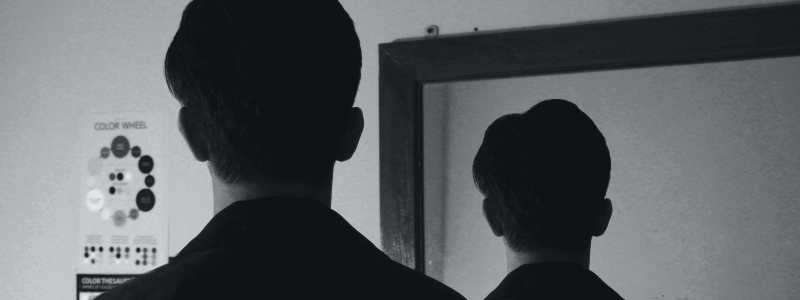Perhaps a question that has occupied humans since the dawn of time, it may seem like an odd title for an article, however, the answer to this question in psychological terms is profound.
What love is not
Firstly, love is not really what most people believe it to be; the opposite of hate.
Love can only really exist in the context of a relationship whether with ourselves or another. In fact, it is a prerequisite that we love ourselves in order to be able to love another. And loving ourselves has itself a prerequisite, which is that we have internalised the felt experience of being loved by another. Love begets love.
Love is also not the same as falling in love. Falling in love is generally a phrase that we apply to romantic relationships. It is a powerful and wonderful experience filled with a range of diverse emotions that make us feel quite ‘out of sorts’, and in presentation can be a little akin to psychosis, in the old-fashioned sense of the word – we do not see the other as they are, but idealise them to the extent that we can ignore reality.
Therefore, love is neither the absence of hate, nor is it idealisation, which is really another way of saying the same thing.
The opposite of love
Returning to the question of what is the opposite of love, it is indifference.
Indifference implies no relationship. Now, this may be all well and good in the context of others with whom we have no contact – people we pass in the street – but relationally, indifference is problematic.
Indifference towards someone with whom we are supposedly having a relationship means that we are unable to care about them. We are unable to relate to them as a separate human being who has their own set of thoughts, feelings and needs.
In relationships where there is an indifference towards the other, the relationship is inherently based on power and control dynamics in lieu of love. This would also psychologically constitute a sadomasochistic relationship, one that is based on a need for the other rather than a love for the other.
Such relationships are rigid, uncompromising, unsatisfying and based on fear of abandonment rather than on freedom.
What love is
Put simply, love is the capacity to value another, despite a lack of control over them and an acknowledgement of difference.
Love is the capacity to tolerate frustration and disappointment in a relationship.
And real relationships are the integration of both love and hate.
Who can love?
Human beings are relational in nature, meaning that we are born into relationship with our mothers. Like other mammals we develop in utero and are dependent on the relationship with our mothers for our survival – and more so and for a longer duration than any other mammal.
It is through our relationship with our mother (or primary carer) that we learn about love. Through being loved we learn that we are lovable and therefore worthy of love. We learn over many years to love ourselves and then with this comes the capacity to love others. That’s if it all goes to plan.
Infants cannot love and nor can some adults
Most people tend to idealise babies seeing them as lovely, sweet and adorable. However, babies are little tyrants. Babies and young infants are entirely consumed with their own needs. They have no capacity to love their mother, father or anyone else – they simply need to be loved. That does not mean they don’t form an attachment to us or that they don’t need us – on the contrary, they need their mother for their very survival.
However, an infant never wakes in the night and thinks to herself: “My mother is asleep so I will put off needing a feed for another hour so she can get some rest”. They simply cry. Over time infants must learn about surviving feelings before they develop the capacity to love, and one of the main feelings they must contend with is frustration.
Mothers frustrate their infants enormously, in that despite the fantasies of the young child, they have no control over their mother. They can cry, scream and make a mess but ultimately it is up to the mother when she appears and if at all.
Most mothers do appear, but not magically at the exact moment the infant needs her. This presents the infant with a problem. The young child, in order to cope with feeling helpless and impotent, initially constructs a story of the perfect mother. When this jars with reality as a result of the ordinary failings and humanness of her mother, the solution for the infant is to create two mothers: one good and one bad.
The two mothers – love(d) and hate(d)
The infant creates this split in order to cope with her frustrations and rage at not being able to control her mother. The good mother is the one who attends to her needs, the bad mother is the one who disappoints. It is a developmental step and a way of psychologically managing conflicting feelings – love and hate.
Over time, with a good enough relationship between mother and child, the child reaches the painful conclusion that there are not two mothers, but rather one who is mostly good, but also disappoints her. This is a huge developmental stage and means that the young child can not only start to bear reality and the separateness of others, but also forms the foundations of being able to love.
So, the answer to the question “who can love?” is that it is those who have reached a developmental level of maturity that in the world of psychoanalytic object relations we call ‘the depressive position’.
The sad reality is that there are a fair few adults who are simply unable to love. They continue to see the world in terms of good and bad and therefore oscillate between idealisation and denigration – neither position being real except in the world of fairy tales.
Personalities that can love
In the world of psychoanalytical psychotherapy, we tend to focus less on the behaviour of a person (although it still matters) and more on understanding, through the therapeutic relationship, two key diagnostic criteria: personality organisation and personality style.
Personality organisation is a term used to understand the psychological maturity of a person – what ordinary developmental stages of emotional and psychological maturity they have worked through. There are three categories, neurotic (most of us), borderline and psychotic. Please note the term ‘borderline’ has nothing to do with the DSM diagnosis of borderline personality disorder.
All of us have a personality style and whilst there is no such thing as a single personality style as we are all a mix of different traits, most of us have a style that dominates. The more dominant one particular style and the more rigid that person’s personality combined with having a borderline personality organisation, the more likely it is that that person may be described as suffering from a personality disorder.
The narcissistically organised patient
If we take the example of a strongly narcissistically organised patient who has been on the receiving end of childhood neglect and as a result has a borderline organisation, this person is stuck developmentally at a very young age.
I have chosen the narcissistic personality style as an example, as the developmental process of shifting from a one-person world to a two-person world is one we all undergo – we therefore all have narcissistic personality styles as young infants.
This patient will not be able to love nor feel loved. They will oscillate between idealising and denigrating others, and be indifferent to the feelings and needs of anyone around them. They need others strongly but hide this, as vulnerability is shameful to them.
Why does love matter?
Love matters enormously as we are born into, defined by and continue to need relationships throughout our lives. Ultimately, it is love that gives life meaning.
Devoid of love, the world is a fearful and dangerous place – a place that needs controlling and managing.
Without the capacity to love, we cannot have psychological freedom.
Psychotherapy is a cure through love
Freud talked about analysis (psychotherapy) as being a cure through love. I have written about this here.
What has been damaged or hurt in relationship can only be healed in relationship. And real relationships are always based on love.
Mark Vahrmeyer, UKCP Registered, BHP Co-founder is an integrative psychotherapist with a wide range of clinical experience from both the public and private sectors. He currently sees both individuals and couples, primarily for ongoing psychotherapy. Mark is available at the Lewes and Brighton & Hove Practices.
Further reading by Mark Vahrmeyer –
I worked as a Psychotherapist with Death. Here’s what I learnt
How do I become more assertive?
What is the difference between loving and longing?






